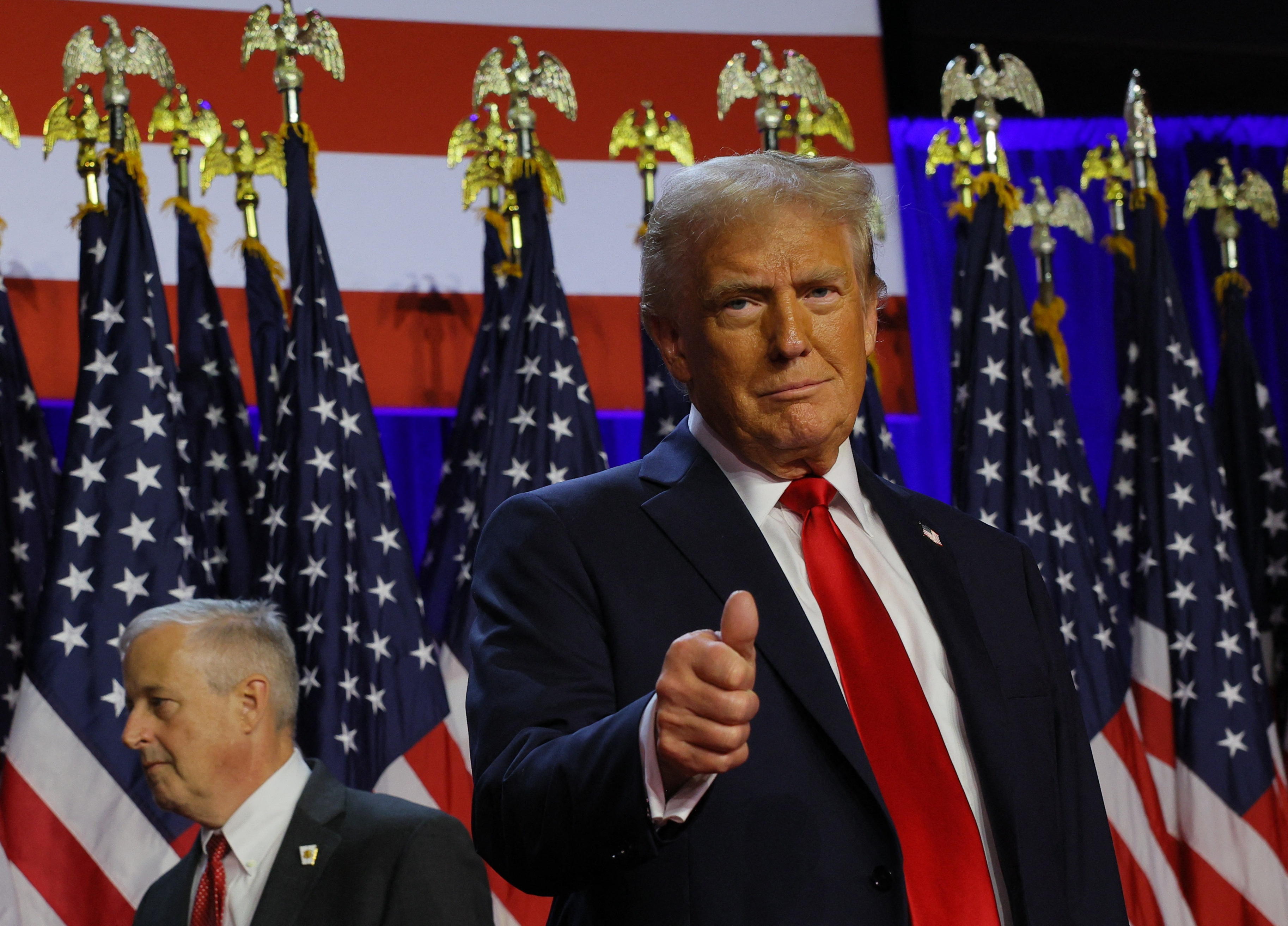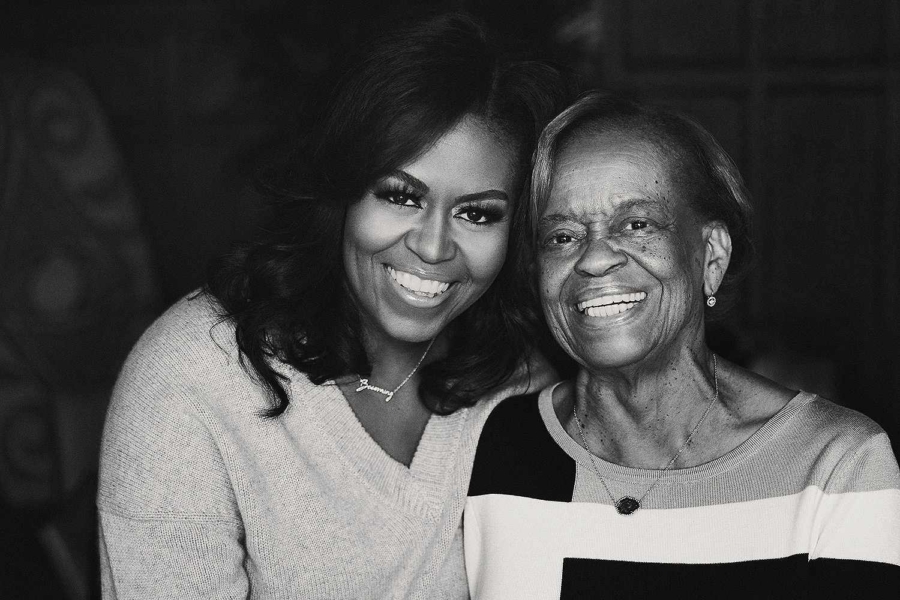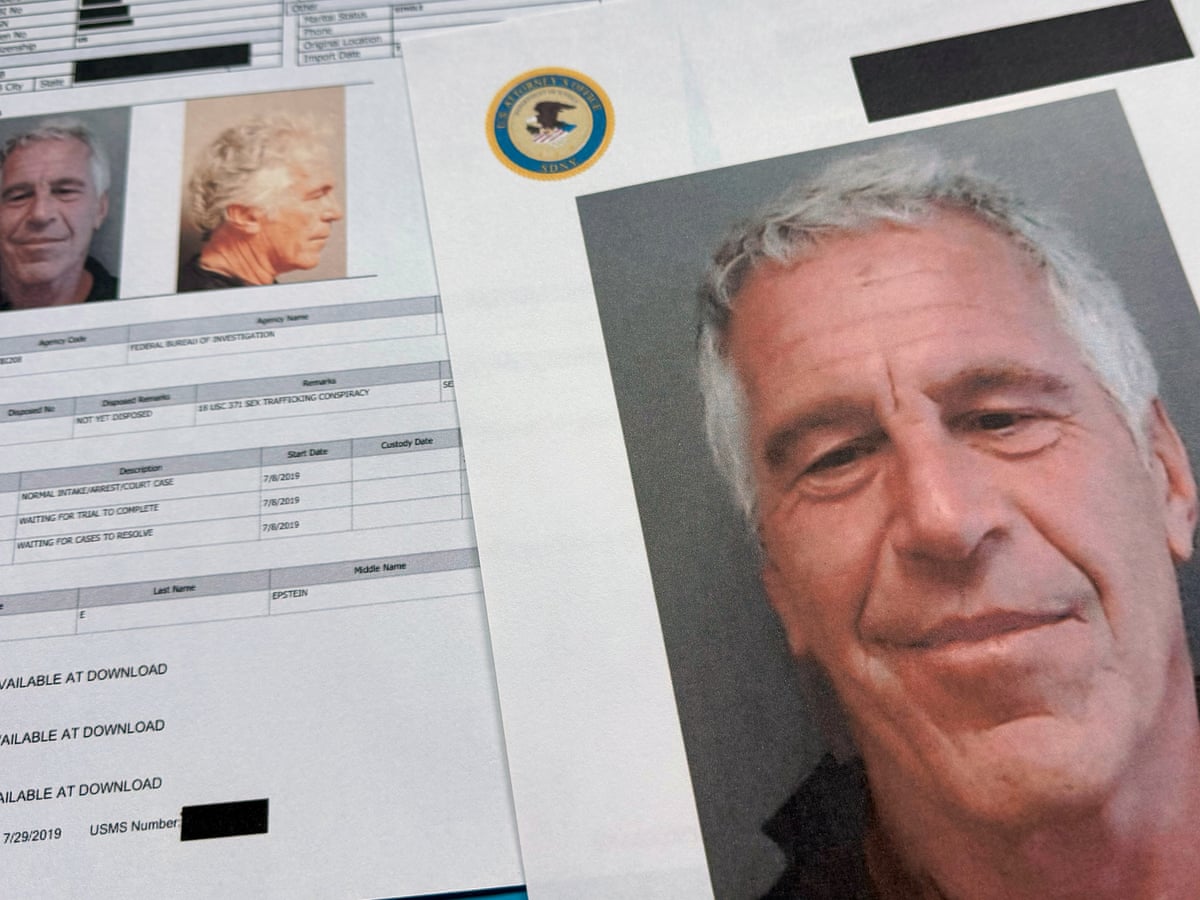
Europe congratulates Trump, amid worries about his return to the White House
Given turbulent transatlantic relations in Trump’s previous term, his past strong criticism of NATO, his ambivalent view of Ukraine’s fight against Russia’s invasion and stance on climate change, many European officials had said ahead of the election they were worried about a win for Trump.

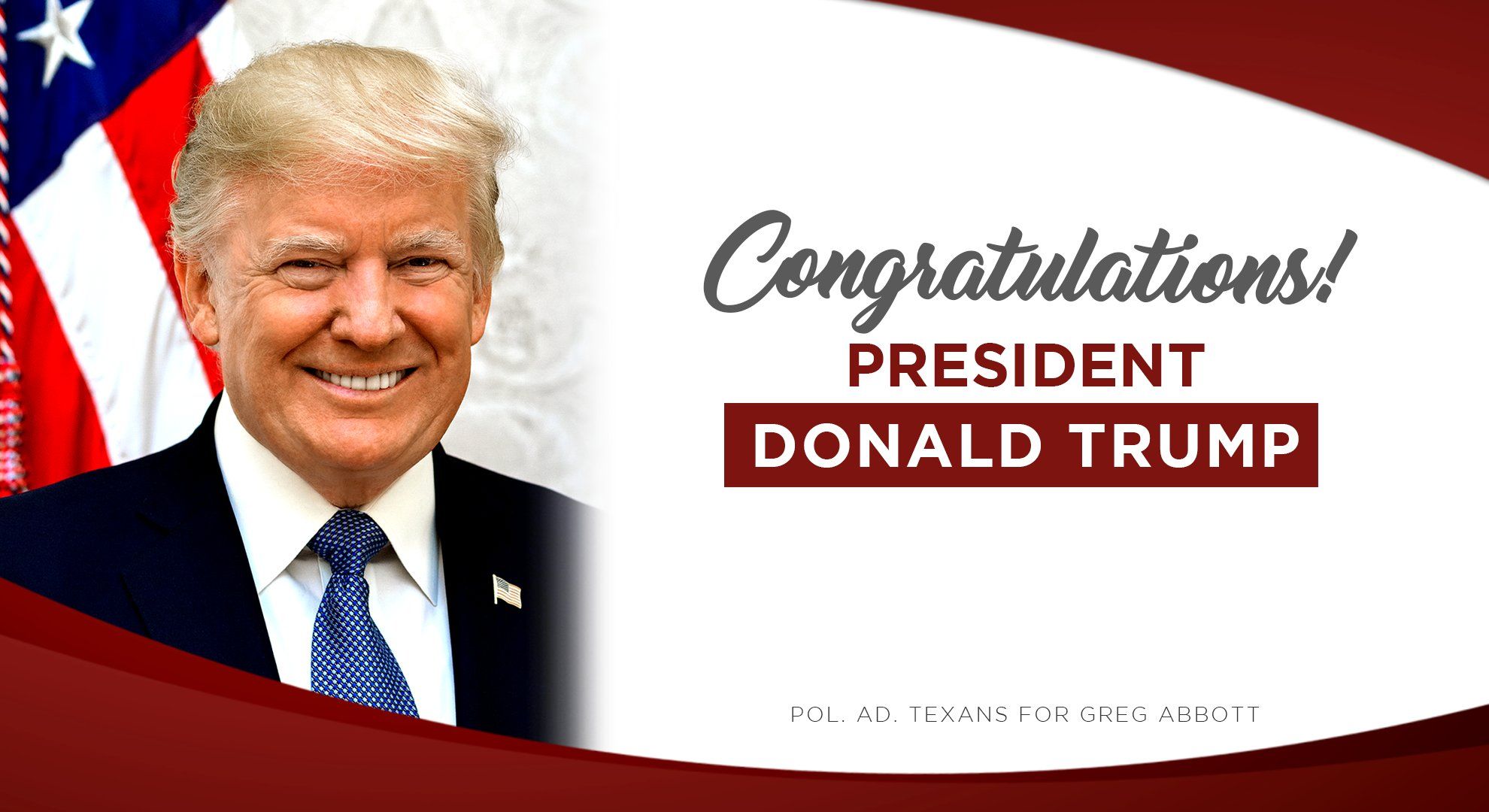
But Macron was among the first to reach out to establish a good relationship.
“Congratulations, President Donald Trump. Ready to work together as we did for four years,” Macron said on X. “With your convictions and mine. With respect and ambition. For more peace and prosperity.”
Macron added in another message on X that he had talked with German Chancellor Olaf Scholz – whose coalition faces make-or-break talks this week – to ensure they will work together for a stronger, more united Europe that defends its interests and values.
NATO chief Mark Rutte was among many others in Europe who congratulated Trump and hoped for good cooperation.
Alongside foreign policy, European trade could face a bumpy ride: Trump said last month that the European Union would have to “pay a big price” for not buying enough American exports if he won the election.
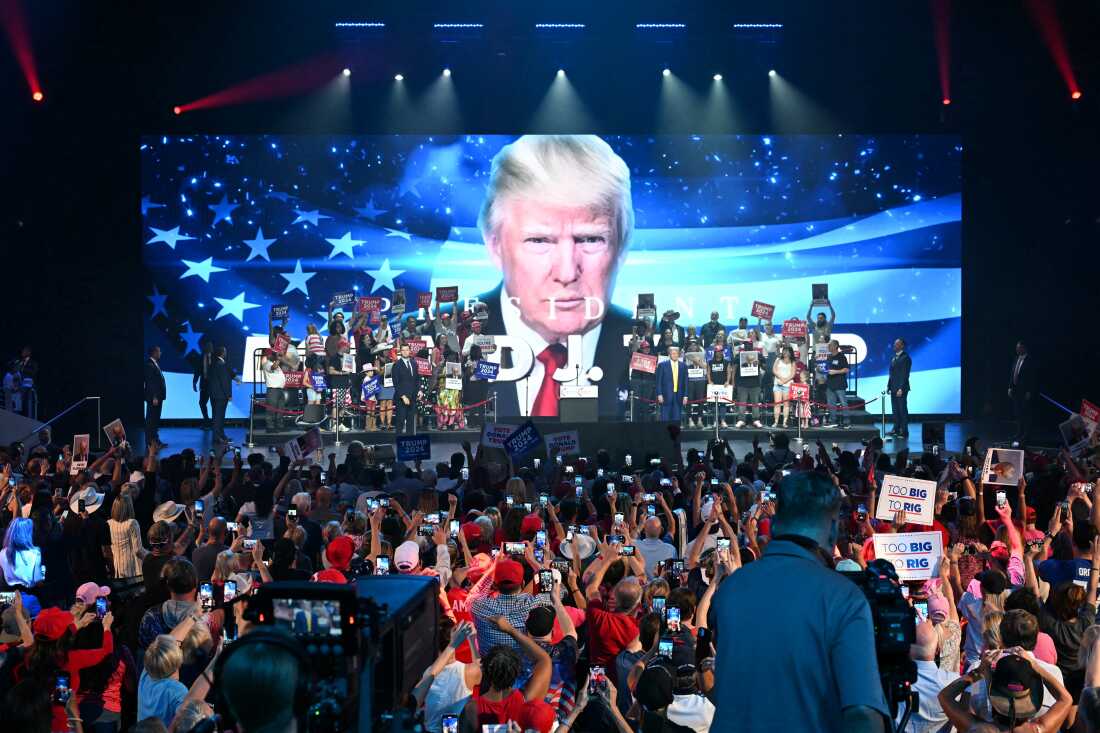
TRADE TENSIONS?
Trump has said he will impose a 10% tariff on imports from all countries, and 60% duties on imports from China.
These would hit supply chains throughout the world, likely triggering retaliation and raising costs, and China seeking to divert its exports towards Europe, economists warn.
Barclays has warned of possible “high single-digit” percentage drops in European earnings should trade conflicts reignite.
Orban, who is at odds with most of his EU peers and unlike other EU leaders had openly endorsed Trump’s presidential bid, posted enthusiastic messages on X early on Wednesday.
“The biggest comeback in US political history! Congratulations to President @realDonaldTrump on his enormous win. A much needed victory for the World!” he wrote.
Orban said earlier this week that Europe would need to rethink its support of Ukraine if Trump was re-elected president.
Other far-right politicians across Europe rushed to congratulate Trump.
“This was an election of the working population in the US. It was not the woke Hollywood that won but rather the working people,” Alice Weidel, co-leader for Germany’s Alternative for Germany said on X. “It was a vote against mass migration, it was a vote against economic decline.”
Far-right leader Geert Wilders, who heads the largest party in The Netherlands’ governing coalition, said on X early on Wednesday: ” CONGRATULATIONS PRESIDENT TRUMP! CONGRATULATIONS AMERICA!”
World leaders congratulate Trump on election win
Congratulations are flowing in from world leaders for President-elect Trump following his win in the 2024 presidential election over Vice President Harris.
The well wishes came from key allies that Trump will work with to address issues on the global stage, including United Kingdom Prime Minister Keir Starmer, French President Emmanuel Macron and Ukrainian President Volodymyr Zelensky.
Starmer said in a statement that he looks forward to working with Trump in the years ahead and that the U.K. and U.S. “stand shoulder to shoulder in defence of our shared values of freedom, democracy and enterprise. Macron called back to their time working together during Trump’s first term, saying he is ready to collaborate as they did for four years previously.
“With your convictions and mine. With respect and ambition. For more peace and prosperity,” Macron said.
Zelensky, who has worked to maintain a close relationship with the U.S., especially since Russia’s 2022 invasion of Ukraine, called Trump’s win “impressive” and said he looked forward to continuing the country’s partnership. His statement comes as the issue of continued U.S. aid for Ukraine has become polarized, with greater numbers of Republicans declaring their opposition to it.
“We look forward to an era of a strong United States of America under President Trump’s decisive leadership. We rely on continued strong bipartisan support for Ukraine in the United States,” Zelensky said.
Israeli Prime Minister Benjamin Netanyahu congratulated Trump and the incoming first lady, Melania, on “history’s greatest comeback.”

“Your historic return to the White House offers a new beginning for America and a powerful recommitment to the great alliance between Israel and America,” he said.
Trump also received congratulations from Jens Stoltenberg, who served as secretary-general of NATO until his term ended in October. Trump has frequently criticized NATO throughout his political career, arguing that other members do not commit enough of their budgets to defense spending as recommended.
“In a world of growing instability, strong U.S. leadership remains essential,” Stoltenberg said.
A Presidential Campaign Unlike Any Other Ends On Tuesday, Here’s How We Got Here
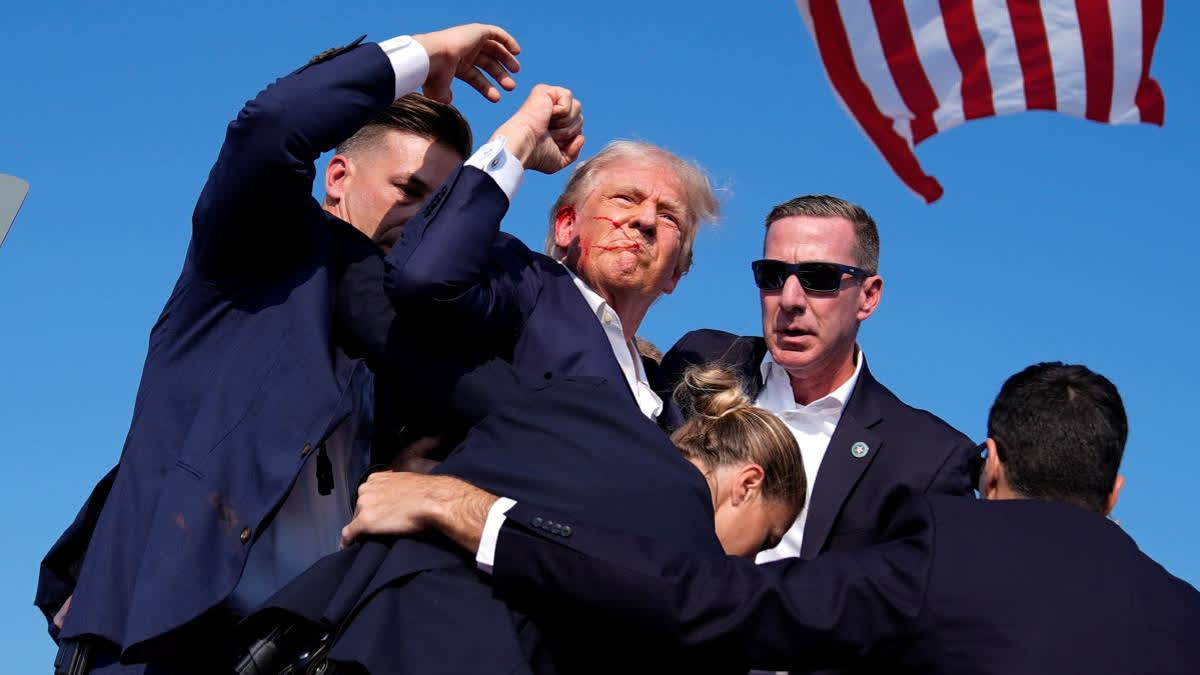
Washington: It’s the election that no one could have foreseen.
Not so long ago, Donald Trump was marinating in self-pity at Mar-a-Lago after being impeached twice and voted out of the White House. Even some of his closest allies were looking forward to a future without the charismatic yet erratic billionaire leading the Republican Party, especially after his failed attempt to overturn an election ended in violence and shame. When Trump announced his comeback bid two years ago, the New York Post buried the article on page 26.
At the same time, Kamala Harris was languishing as a low-profile sidekick to President Joe Biden. Once seen as a rising star in the Democratic Party, she struggled with both her profile and her portfolio, disappointing her supporters and delighting her critics. No one was talking about Harris running for the top job — they were wondering if Biden should replace her as his running mate when he sought a second term.
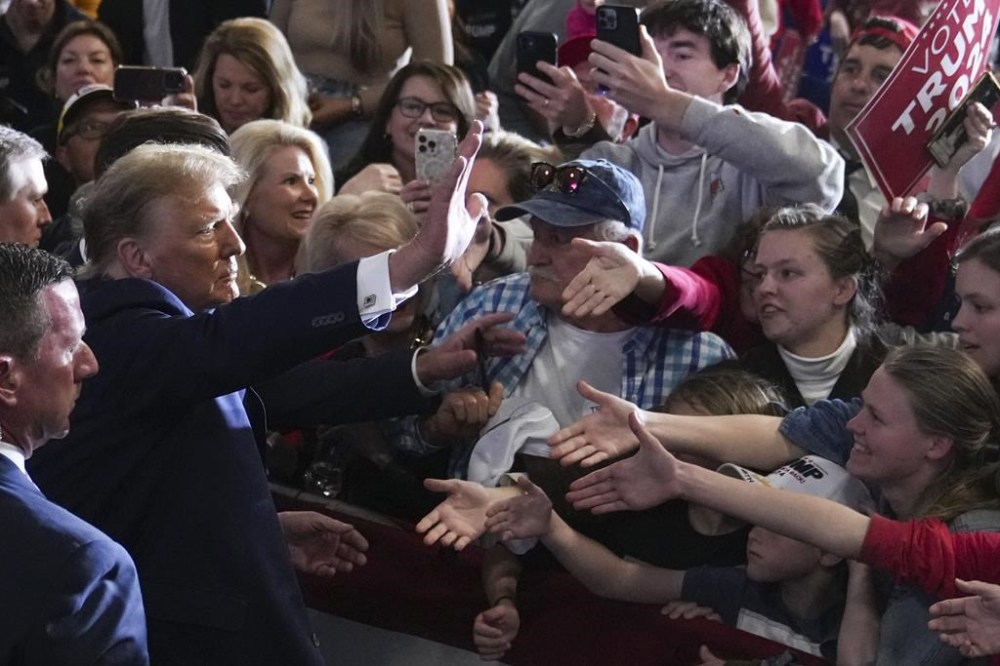
But on Tuesday, improbable as it may have seemed before, Americans will choose either Trump or Harris to serve as the next president. It’s the final chapter in one of the most bewildering, unpredictable and consequential sagas in political history. For once, the word “unprecedented” has not been overused.
“If someone had told you ahead of time what was going to happen in this election, and you tried to sell it as a book, no one would believe it,” said Neil Newhouse, a Republican pollster with more than four decades of experience. “It’s energized the country and it’s polarized the country. And all we can hope is that we come out of it better in the end.”
History was and will be made. The United States has never elected a president who has been convicted of a crime. Trump survived not one but two assassination attempts. Biden dropped out in the middle of an election year and Harris could become the first female president. Fundamental tenets about democracy in the most powerful nation on earth will be tested like no time since the Civil War.
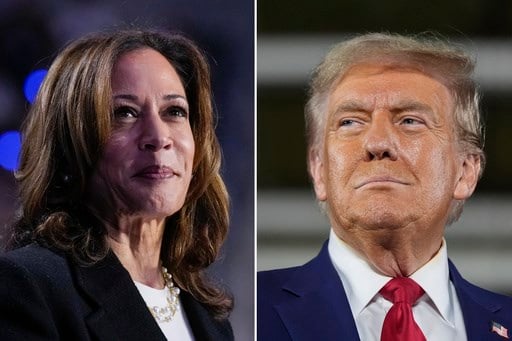
And that’s not to mention the backdrop of simultaneous conflicts in Europe and the Middle East, hacking by foreign governments, an increasingly normalized blizzard of misinformation and the intimate involvement of the world’s richest man, Elon Musk.
For now, the only thing the country can agree on is that no one knows how the story will end.
Trump rebounded from disgrace to the Republican nomination
Republicans could have been finished with Trump after Jan. 6, 2021.
That’s the day he fired up his supporters with false claims of voter fraud, directed them to march on the U.S. Capitol while Congress was ceremonially certifying Biden’s election victory, and then stood by as rioting threatened lawmakers and his own vice president.
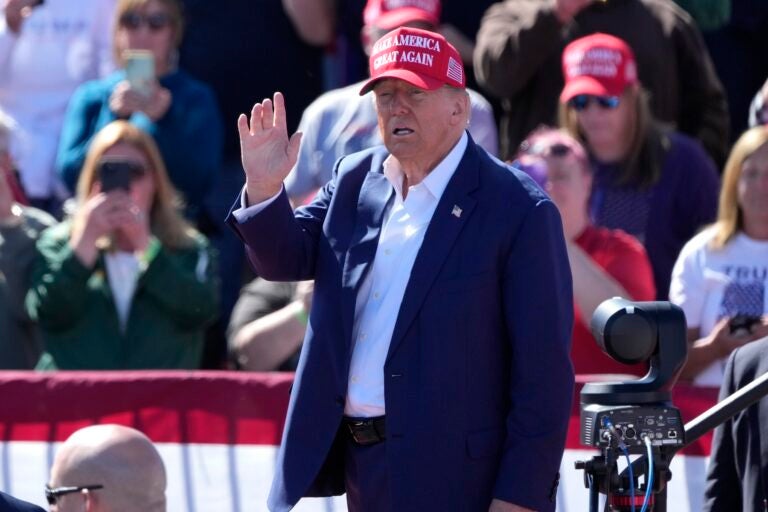
But not enough Republicans joined with Democrats to convict Trump in an impeachment trial, clearing a path for him to run for office again.
Trump started planning a comeback even as some leaders in his party hoped he would be eclipsed by Ron DeSantis, the Florida governor, or Nikki Haley, the former South Carolina governor who served as Trump’s ambassador to the United Nations.
In the year after Trump announced that he would run against Biden, he faced criminal charges four times. Two of the indictments were connected to his attempts to overturn his election defeat. Another involved his refusal to return classified documents to the federal government after leaving office. Trump has pleaded not guilty to all the charges, and none of those cases have been resolved.
However, a fourth indictment in New York led to Trump becoming the first president in U.S. history to be criminally convicted. A jury found him guilty on May 30 of falsifying business records over hush money payments to a porn star who claimed they had an affair.

None of it slowed Trump, who practically ignored his opponents during the primary as he barreled toward the Republican presidential nomination. A mugshot from one of his arrests was adopted by his followers as a symbol of resisting a corrupt system.
Trump’s candidacy capitalized on anger over inflation and frustration about migrants crossing the southern border. He also hammered Biden as too old for the job even though he’s only four years younger than the president.
But Democrats also thought Biden, 81, would be better off considering retirement than a second term. So when Biden struggled through a presidential debate on June 27 — losing his train of thought, appearing confused, stammering through answers — he faced escalating pressure within his party to drop out of the race.
As Biden faced a political crisis, Trump went to an outdoor rally in Butler, Pennsylvania on July 13. A young man evaded police, climbed to the top of a nearby building and fired several shots with a semiautomatic rifle.
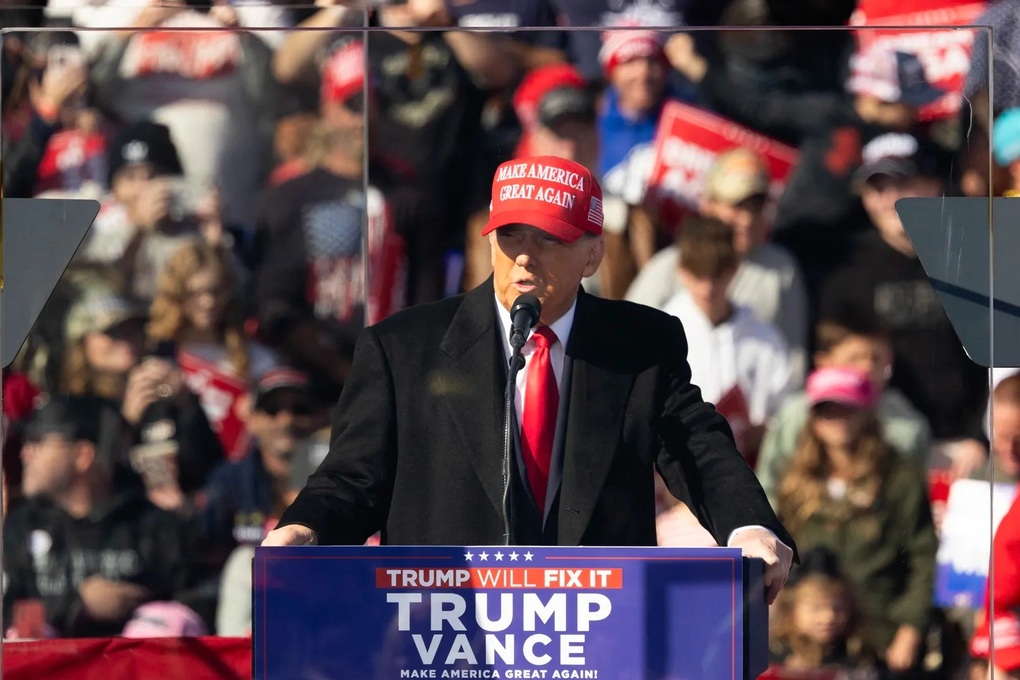
Trump grabbed at his ear and dropped to the stage. While Secret Service agents crowded around him, he lurched to his feet with a streak of blood across his face, thrust his fist in the air and shouted “fight, fight, fight!” An American flag billowed overhead.
It was an instantly iconic moment. Trump’s path to the White House seemed clearer than ever — perhaps even inevitable.
Harris gets an unexpected opportunity at redemption
The vice president was getting ready to do a puzzle with her nieces on the morning of July 21 when Biden called. He had decided to end his reelection bid and endorse Harris as his replacement.
She spent the rest of the day making dozens of phone calls to line up support, and she had enough to secure the nomination within two days.
It was a startling reversal of fortune. Harris had flamed out when running for president four years earlier, dropping out before the first Democratic primary contest. Biden resuscitated her political career by choosing her as his running mate, and she became the first woman, Black person and person of South Asian descent to serve as vice president.
But Harris’ struggles did not end there. She fumbled questions about immigration, oversaw widespread turnover in her office and faded into the background rather than use her historic status as a platform.

All of that started to change on June 24, 2022, when the U.S. Supreme Court overturned the nationwide right to abortion enshrined by Roe v. Wade. Harris became the White House’s top advocate on an issue that reshaped American politics.
She also proved to be more nimble than before. Shortly after returning from a weeklong trip to Africa, her team orchestrated a spur-of-the-moment venture to Nashville so Harris could show support for two Tennessee lawmakers who had been expelled for protesting for gun control.
Meanwhile, Harris was networking with local politicians, business leaders and cultural figures to gain ideas and build connections. When Biden dropped out, she was better positioned than many realized to seize the moment.
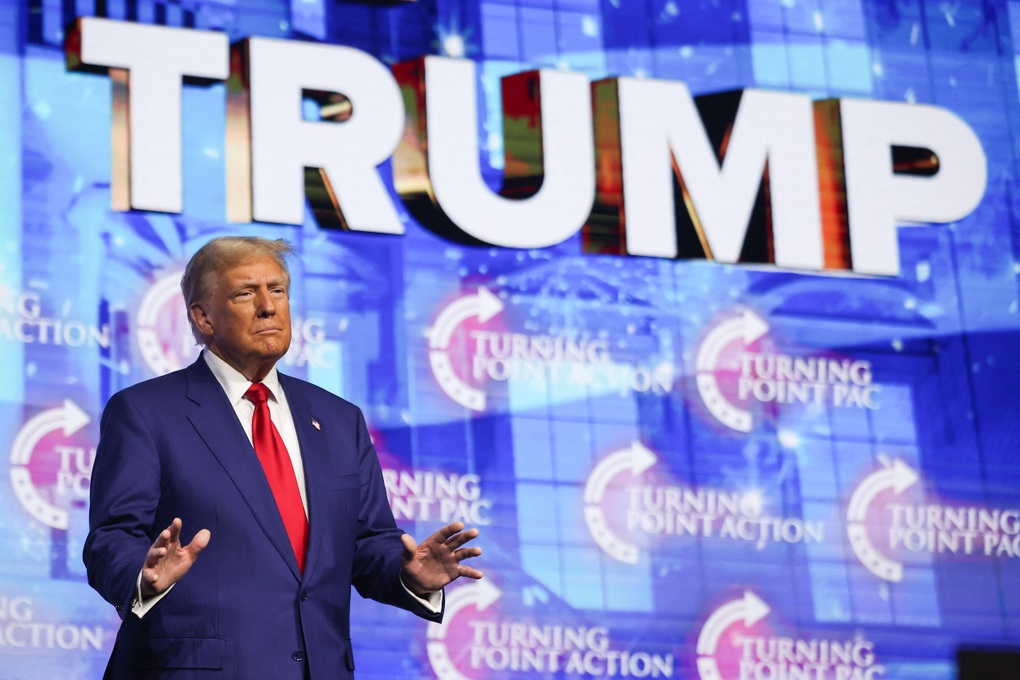
The day after she became the candidate, Harris jetted to Wilmington, Delaware to visit campaign headquarters. Staff members had spent the morning printing “Kamala” and “Harris for President” signs to tape up next to obsolete “Biden-Harris” posters.
There were 106 days until the end of the election.
The battle between Trump and Harris will reshape the country
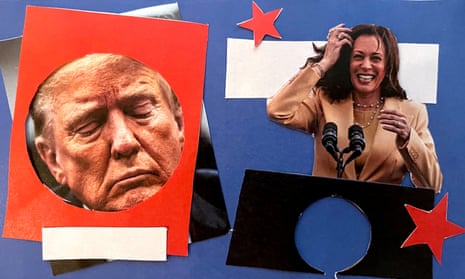
While speaking to campaign staff in Wilmington, Harris used a line that has become a mantra, chanted by supporters at rallies across the country. “We are not going back,” she declared.
It’s a fitting counterpoint to Trump’s slogan, “make America great again,” which he has wielded since launching his first campaign more than eight years ago.
The two candidates have almost nothing in common, something that was on display on Sept. 10, when Harris and Trump met for the first time for their only televised debate.
Harris promised to restore abortion rights and use tax breaks to support small businesses and families. She said she would “be a president for all Americans.”
Trump took credit for nominating the justices that helped overturn Roe, pledged to protect the U.S. economy with tariffs and made false claims about migrants eating people’s pets. He called Harris “the worst vice president in the history of our country.”
Harris was widely viewed as gaining the upper hand. Trump insisted he won but refused a second debate. The race remained remarkably close.
Pundits and pollsters have spent the final weeks straining to identify any shift in the candidates’ chances. Microscopic changes in public opinion could swing the outcome of the election. It might take days to count enough votes to determine who wins.
The outcome, whenever it becomes clear, could be just another surprise in a campaign that’s been full of them.

If Donald Trump wins, these are the Republicans he’ll lean on to pass his priorities
WASHINGTON – If Donald Trump is reelected to a second term in the White House, he would return to Washington with very different relationships than when he left the nation’s capital in January 2021.

At the end of his first term, his standing among GOP lawmakers was precarious: The Jan. 6, 2021 riot at the U.S. Capitol building led to condemnations from both sides of the aisle and his historic second impeachment. Senate Minority Leader Mitch McConnell, R-Ky., delivered a scathing floor speech after Trump’s Senate trial saying the lame duck president was “practically and morally responsible” for the riot, and even allies like Sen. Lindsey Graham, R-S.C., said “count me out” on Trump. Observers speculated it would be the end of his political career.
Nearly four years later, Trump has defied those odds in a remarkable comeback. His political career has not only survived, he is virtually tied with Democratic nominee Vice President Kamala Harris in polling averages. He has consolidated his power in the GOP, replacing Republican National Committee leaders with allies (and family) loyal to him. He has remained a kingmaker in Republican primary elections, giving lawmakers a powerful incentive to stay on his good side if they want to win elected office.
And he has strengthened his influence in Congress, shaping policy as a private citizen from his members-only Mar-a-Lago club and personal residence. Just this year, he helped kill a bipartisan negotiated border security bill and gave GOP lawmakers cover to support $95 billion in aid to Ukraine, Israel and Taiwan – a dynamic that hasn’t always pleased congressional Republicans.

“Just like he did in his first term, President Trump will work with anyone who wants to help deliver on his promises made to the American people,” Trump campaign spokesperson Karoline Leavitt said in a statement to USA TODAY.
The Senate is expected to flip to Republicans next year as they have no seats to defend in battleground or blue-leaning states, while House Republicans are fighting to retain control of the lower chamber. If Republicans win the House, Senate and White House, Trump’s renewed strength and relationships with congressional Republicans could mean policy wins for the party over the next two years, though they would still have to clear the 60-vote filibuster threshold in the Senate.
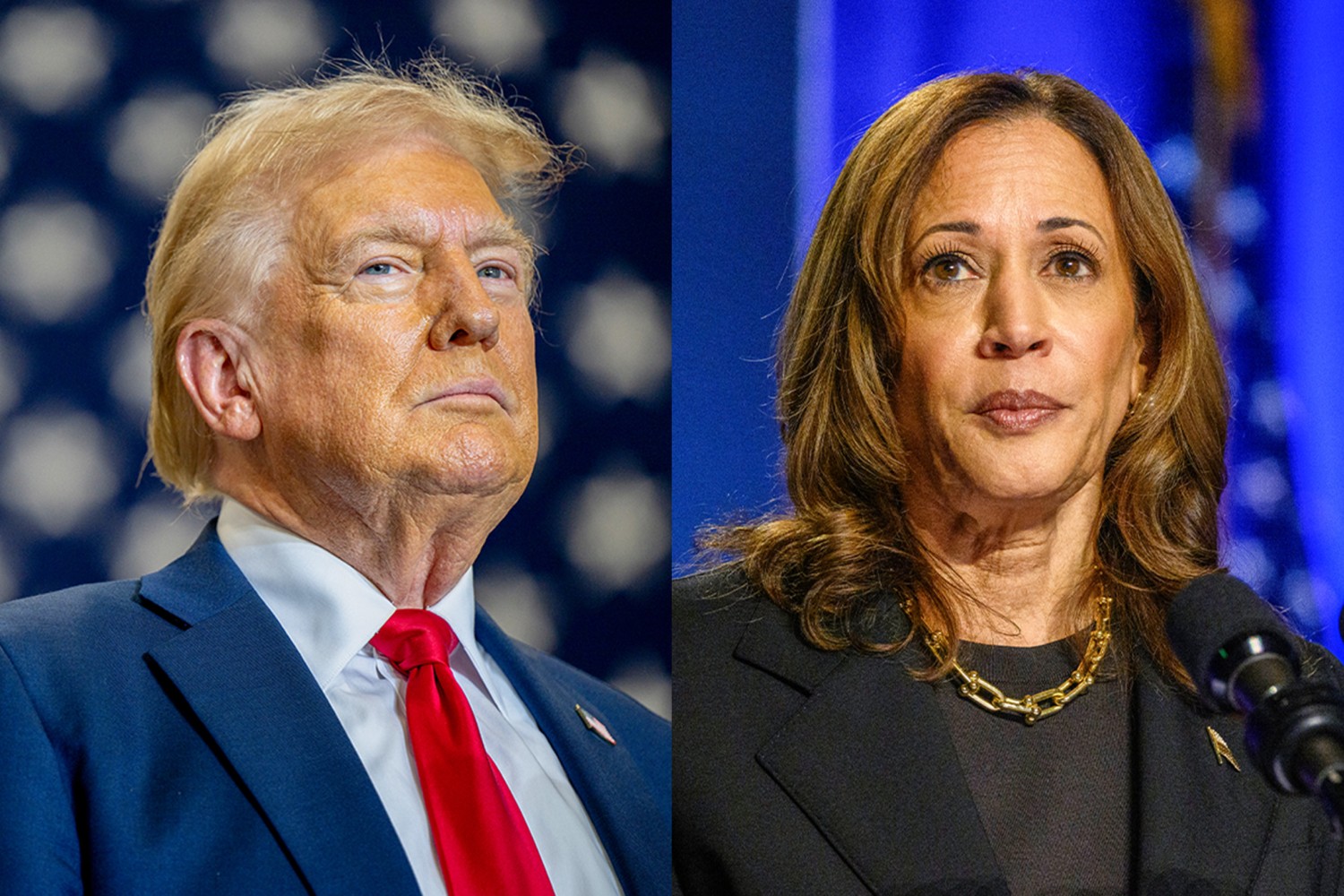
If Democrats retain control over either chamber of Congress, they will work to derail those efforts, and GOP leaders will be forced to work with their Democratic counterparts to get anything substantive done during a second Trump administration. If Democrats somehow retain control of the Senate, they would likely slow down confirmation of Trump’s judicial nominees and Cabinet picks.
Some lawmakers are closer than others to the former president, who values loyalty above all else. These people are likely to be advocates and liaisons for Trump if he is reelected.
Trump’s House allies
In the House, several of Trump’s allies hail from Florida, the state he has called his official home since 2019.
Second-term Florida Rep. Byron Donalds was on Trump’s vice presidential shortlist. He has been a top surrogate this election cycle, and he spoke at the former president’s Madison Square Garden rally last Sunday. Florida Reps. Matt Gaetz – the firebrand congressman who helped topple former House Speaker Kevin McCarthy last October – and Mike Waltz represented Trump in the post-presidential debate spin room. And Rep. Anna Paulina Luna, R-Fla., appeared at Trump rallies and in Manhattan to support him during his hush money criminal trial.

Some of Trump’s other closest relationships go back years. Georgia Rep. Marjorie Taylor Greene has been one of Trump’s staunchest allies in the House since assuming office in 2021 and has acted as an intermediary for him in key moments, such as during the rebellion against McCarthy. Democrats booted Greene from committees when they controlled the chamber in 2021 and 2022, though GOP leadership once it took over in 2023 reinstated her positions.
Rep. Jim Jordan, R-Ohio, is another longtime ally who helped start the right-wing House Freedom Caucus that has repeatedly broken with their fellow Republicans and who now serves as chair of the House Judiciary Committee, where he oversees investigations into the Biden administration. Trump endorsed Jordan to succeed McCarthy as speaker. Another Ohio member, former Trump administration official Rep. Max Miller, is also in frequent contact with the former president.
Rep. Ronny Jackson, R-Texas, became close with Trump as his chief doctor in the White House. Jackson flew to New Jersey to check on Trump after an assassination attempt in July, released a report of the injury to his ear and traveled with the former president as he recovered.
Unlike his still-frosty relationship with McConnell, Trump is friendly with House leadership.
Republican Conference Chair Elise Stefanik, R-N.Y., made a name for herself defending Trump to the media during his first Senate impeachment trial in 2019 and also endeared herself enough to the former president to be under consideration as a potential vice presidential pick earlier this year.
And Trump has spoken glowingly about House Speaker Mike Johnson, R-La., despite repeatedly disagreeing over how to approach looming government shutdowns over the last year.
In 2020, Johnson spearheaded a brief supporting Trump in a lawsuit seeking to overturn President Joe Biden’s win. Johnson now touts his regular conversations with Trump, who defended him against a leadership challenge from Greene. Johnson will also have to defend his post during a leadership election set to take place Nov. 13 and may face challengers, especially if the House flips to Democratic control.
“I have a very close working relationship with President Trump and consider him now a close friend. I know that’s mutual, and he tells me how much confidence he has in my leadership,” Johnson said in a recent interview with Axios – adding that he expects Trump will be “fully supportive” in his bid to remain the House GOP leader.
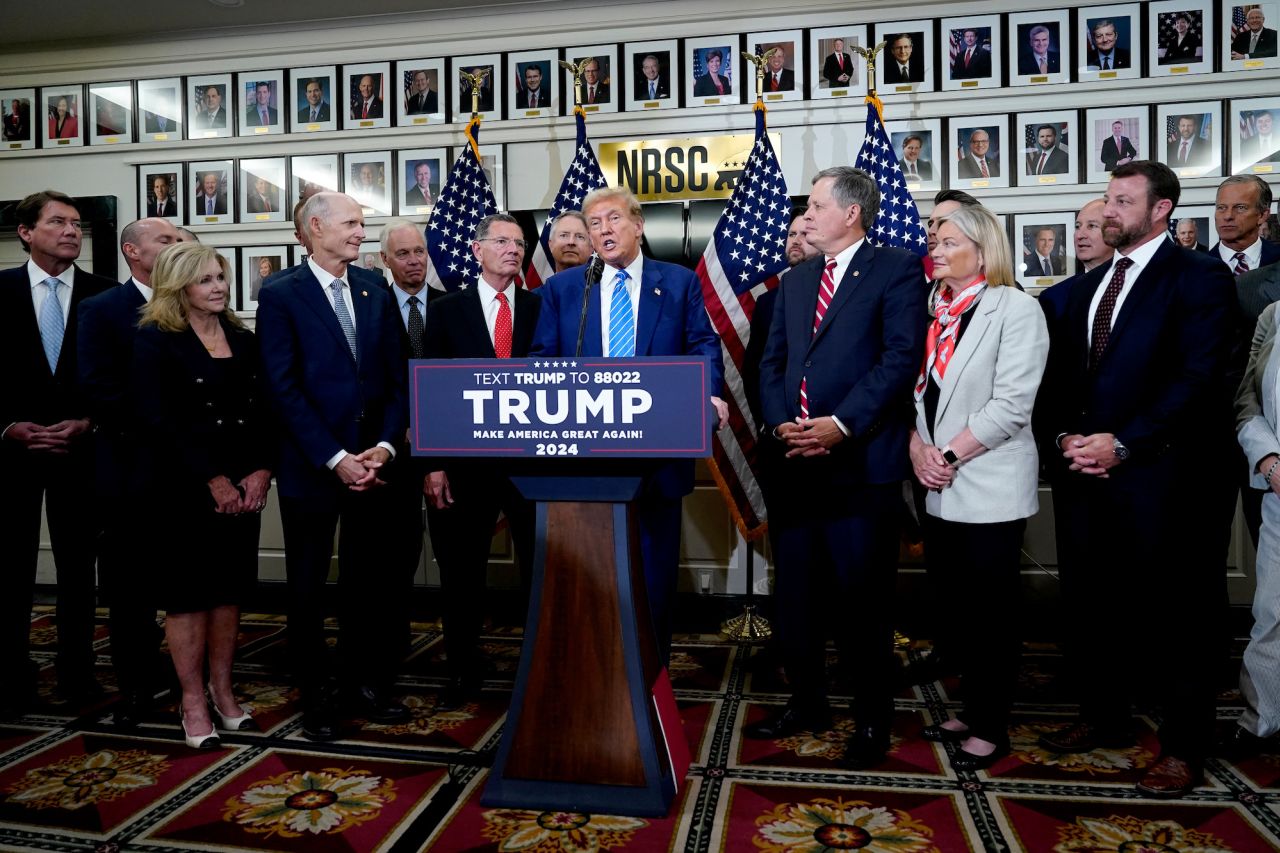
Trump’s Senate allies
The Senate has typically been stacked with fewer Trump die-hards than the House, but the former president still has several close allies in the upper chamber who would be key to helping him enact his agenda if he wins a second term. The Senate also would have the sole responsibility of confirming Trump’s potential Cabinet picks and judicial nominees, including to fill any Supreme Court openings.

Three out of four of Trump’s finalists for his vice presidential pick served in the Senate, and two would still be there next year if he wins – unless they’re scooped up to serve in Cabinet positions.
Sen. Marco Rubio, R-Fla., underwent a years-long transition from Trump skeptic (and 2016 presidential primary opponent) to MAGA acolyte. Rubio is well-versed in foreign policy and is considered someone who Trump listens to on the issue. He has also joined Trump on the campaign trail, most recently appearing at the Republican nominee’s rally in Allentown, Pennsylvania, on Tuesday.
Sen. Tim Scott, R-S.C., started this election cycle as a primary opponent to Trump, but abruptly dropped out of the race in November, two months before the Iowa Caucuses, and endorsed Trump a few months later. The pair connected during the former president’s first term shaping policy in the Tax Cuts and Jobs Act.
Trump’s closest allies in the Senate have been defenders of his brand of conservative populism. Sen. Tom Cotton, R-Ark., was an early Trump ally who gained a reputation during his first term as a “Trump whisperer” who advised the former president on foreign policy and immigration.
He is also close with Alabama Sen. Tommy Tuberville, Tennessee Sen. Marsha Blackburn and Montana Sen. Steve Daines, who is leading Senate Republicans’ campaign resources this election cycle. And he has a longstanding relationship with Graham that has periodically gone sour but regularly rebounded.
Sen. Rick Scott, R-Fla., has a friendship with Trump dating back to when he was the governor of Florida. Scott touted that friendship in a letter to colleagues announcing he would run against Sens. John Thune, R-S.D., and John Cornyn, R-Texas to succeed McConnell, who is stepping down from leadership at the end of the year.
“I will protect senators’ interests while helping President Trump accomplish his goals,” Scott wrote. “Our country’s success and our Conference’s success will be dependent on President Trump’s success.”
Scott, of course, must first survive his own re-election race against former Rep. Debbie Mucarsel-Powell, D-Fla., on Tuesday.
Most senators say Thune and Cornyn are the candidates with the best shot at winning the top Senate leadership post. The internal election, also set for Nov. 13, will have secret ballots – so Trump’s influence may be limited, should he decide to weigh in.
Both do have baggage with the former president: Thune opposed Trump’s efforts to overturn the 2020 presidential election results, and Trump went on to support his primary opponent in 2022. Thune initially endorsed Tim Scott for president this cycle before later endorsing Trump. Cornyn also condemned Trump’s actions on Jan. 6, 2021, and later said he didn’t think Trump could win another presidential race, but endorsed him in this election.
Thune and Cornyn have worked to mend their relations with Trump. Each has visited Trump at Mar-a-Lago, spoken with his transition team and have communicated with him several times throughout the year. Cornyn also spent time with Trump in Texas and a rally in Nevada – and was the lawmaker who managed to get the most bills passed into law during Trump’s first term.
Looking across the aisle, Trump has not developed a reputation as a bipartisan dealmaker, though some Democrats facing tough reelection campaigns in 2024 have touted their ability to work with the former president on key issues.
Sen. Jon Tester, D-Mont., said he “secured billions for Trump’s border wall” and pushed back on Biden administration efforts to peel back Trump-era immigration policies, and Sen. Sherrod Brown, D-Ohio, has touted his collaboration with Trump on trade issues to protect American workers. Rep. Jared Golden, D-Maine, predicted in an op-ed that Trump will win the election and said: “I’m OK with that.”
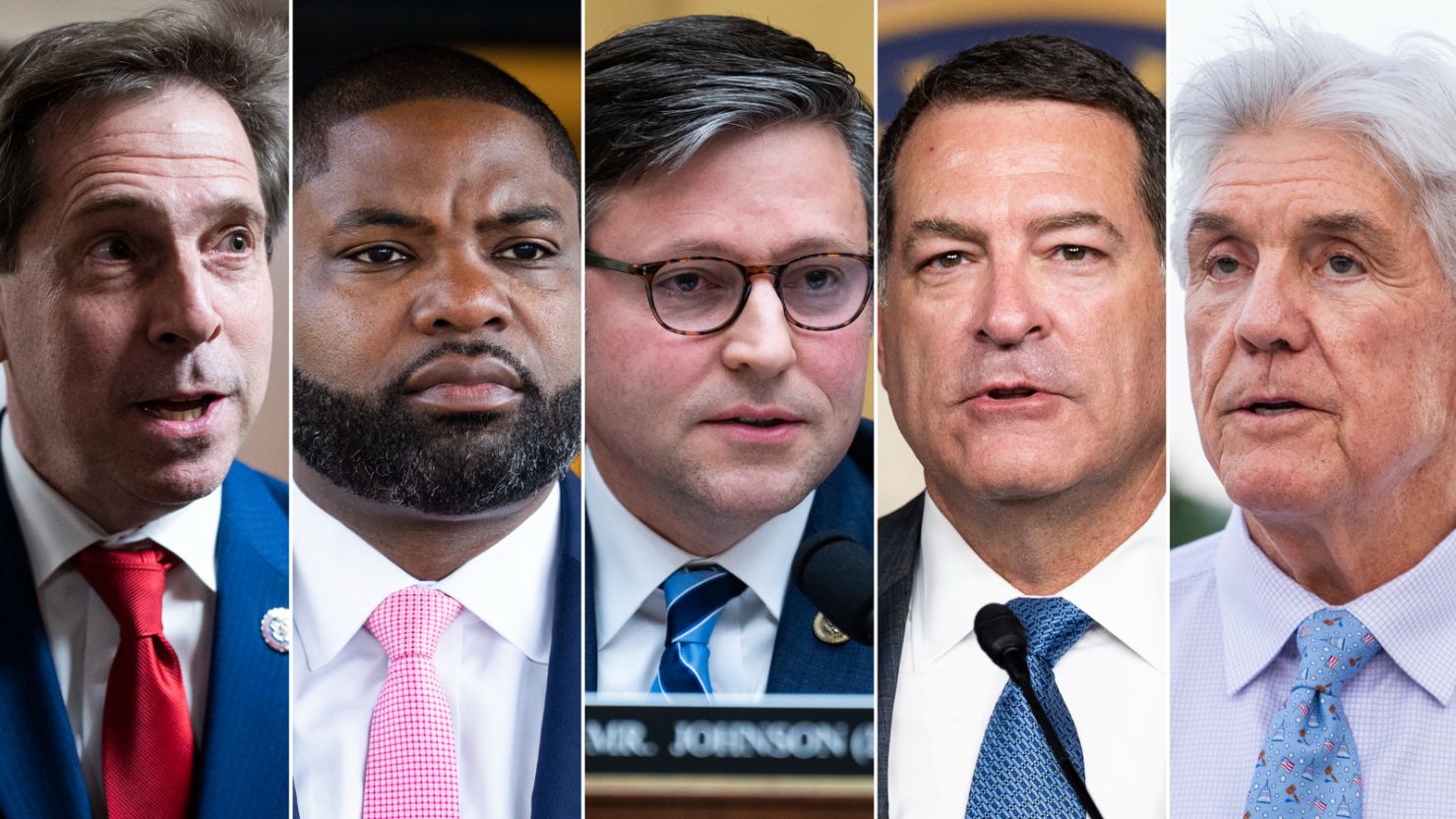
A Trump victory would also open the door to other dealmaking with Democrats. After all, the 2026 midterm campaign is next, and any Democratic lawmakers representing purple or red districts or states would likely expect to face political pressure back home to show they worked with Trump as president.
‘World’s most accurate economist’ predicts victor of the 2024 Presidential Election
The ‘world’s most accurate economist,’ Christophe Barraud, who is the chief economist and strategist at Market Securities Monaco, predicts a Donald Trump victory for the 2024 Presidential Election.
Also, Barraud predicts that Republicans will likely take control of Congress post-election, and that a Trump win could produce a short-term boost to the U.S. economy, but could pose long-term complications due to the soaring deficit.

‘World’s most accurate economist’ predicts Trump victory in upcoming election
Barraud has been ranked as the best economic forecaster for the U.S. economy for the past 11 years by Bloomberg, which earned him the nickname as the “world’s most accurate economist.”
Barraud perceives that signs are pointing to Trump’s victory and a GOP Senate takeover. In addition to this, it is said that the House of Representatives could be more difficult for Republicans to control, but, as of now, they could potentially be victorious.
However, according to an interview Barraud did with Business Insider, if Vice-President Kamala Harris is victorious, it is said that the status-quo split control of Congress will likely continue.
Predicted potential scenarios post-election
Conversely, if Trump wins, and control of Congress is split between the parties, most of his domestic agenda would perhaps be stalled. Therefore, Trump would likely focus on tariffs, which is something that could slow the U.S. economy long-term and hinder international growth.
Barraud foresees the most likely scenario being a Republican sweep of the White House and Congress, as well as a gross domestic product bump between around 2.1% and 2.3% in the next year.
Although, regardless of who takes over the White House, Barraud says the U.S. economy will likely continue to move along, for short-term at least.
